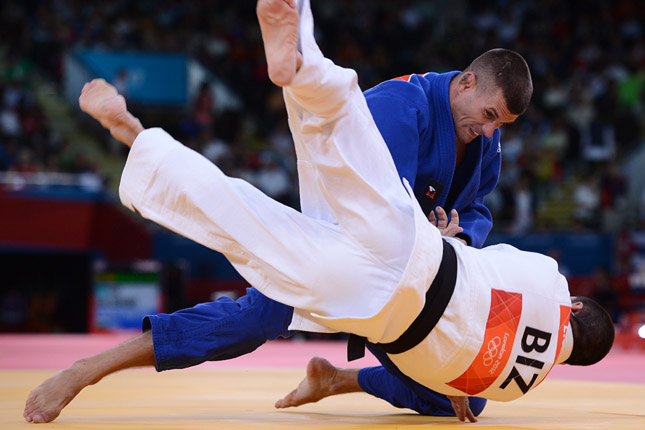Dictionary Z
Z
ZANSHIN (Remaining mind)
"Zanshin" (Awareness) is a term from Japan's martial arts. To be in a Zanshin (Awareness) state, is to
remain on guard to the end, keeping one's concentration focused.
The moment after executing what appears to be a successful Waza, a contestant may relax his guard, thus presenting the opponent with a chance to counter. A contestant must therefore remain
focused until the win has been completely secured. For example, after using a Nage waza (Throwing techniques), etc., to successfully throw an opponent, the contestant's focus may be on the fallen
opponent, when he should in fact be focusing on a follow-up Waza. The state in which one remains focused at all times is called "Zanshin" (Awareness).
The Zanshin (Awareness) concept is also used in the Japanese arts such as the tea ceremony and Japanese dance, etc. Someone who loses focus before something is completed (e.g., forgetting to
close a sliding door), may be accused of "Lacking Zanshin (Awareness)". The roots of Zanshin (Awareness) lie in the concept of being always conscious of the beauty in a given procedure.
ZAREI (seated bow)
"Zanshin" (Awareness) is a term from Japan's martial arts. To be in a Zanshin (Awareness) state, is to
remain on guard to the end, keeping one's concentration focused.
The moment after executing what appears to be a successful Waza, a contestant may relax his guard, thus presenting the opponent with a chance to counter. A contestant must therefore remain
focused until the win has been completely secured. For example, after using a Nage waza (Throwing techniques), etc., to successfully throw an opponent, the contestant's focus may be on the fallen
opponent, when he should in fact be focusing on a follow-up Waza. The state in which one remains focused at all times is called "Zanshin" (Awareness).
The Zanshin (Awareness) concept is also used in the Japanese arts such as the tea ceremony and Japanese dance, etc. Someone who loses focus before something is completed (e.g., forgetting to
close a sliding door), may be accused of "Lacking Zanshin (Awareness)". The roots of Zanshin (Awareness) lie in the concept of being always conscious of the beauty in a given procedure.
. (See REI, RITSUREI)
ZEN
Zen is a school of Mahāyāna Buddhism, translated from the Chinese word Chán to Japanese. This word is in turn derived from the Sanskrit dhyāna, which means "meditation".
Zen emphasizes experiential prajñā, particularly as realized in the form of meditation, in the attainment of enlightenment. As such, it de-emphasizes theoretical knowledge in favor of direct, experiential realization through meditation and dharmapractice.
The establishment of Zen is traditionally credited to be in China, the Shaolin Temple, by the South Indian Pallava prince-turned-monk Bodhidharma, who came to China to teach a "special transmission outside scriptures" which "did not stand upon words". The emergence of Zen as a distinct school of Buddhism was first documented in China in the 7th century AD. It is thought to have developed as an amalgam of various currents in Mahāyāna Buddhist thought — among them the Yogācāra and Mādhyamakaphilosophies and the Prajñāpāramitā literature — and of local traditions in China, particularly Taoism and Huáyán Buddhism. From China Zen subsequently spread south to Vietnam, and east to Korea and Japan
For READING
Deshimaru Taisen, “The zen way to the martial arts”, New York, USA, Ep Dutton, 1982, 120p, ISBN 0525932674.
Leggett, Trevor P., “The Dragon Mask and Other Judo Stories in the Zen Tradition”, London, United Kingdom, Ippon Books, 1995, 128p, ISBN 139781874572169.
ZENPO UKEMI
Forward breakfall.
Forward falling method using shock dispersion injury.
ZENPO KAITEN UKEMI
Forward roll or breakfall.
ZORI
Sandals
ZUBON
The trouses of JUDOGI
(See IJF CONTEST RULES, Article 3/e)

